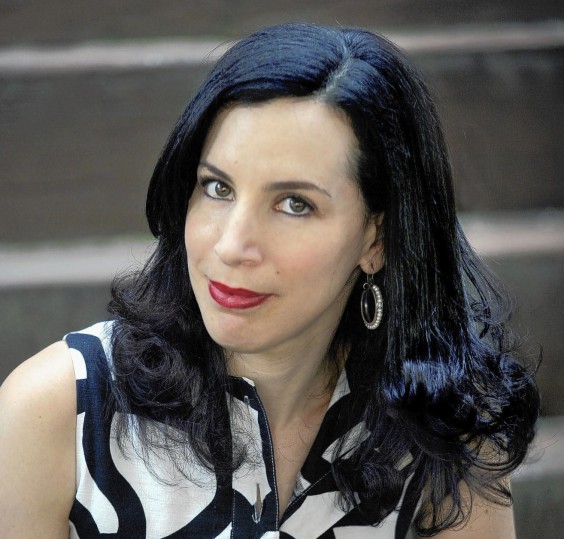Raising the Internet’s Underground Voices: Emily Parker
by Nicole Lund / September 11, 2014 / No comments

Emily Parker, writer and digital diplomacy advisor. Photo: via The Baltimore Sun.
In her new book Now I Know Who My Comrades Are: Voices from the Internet Underground, Emily Parker explores how the Internet has impacted citizens of authoritarian governments, specifically China, Cuba, and Russia. Drawing on her experience as a writer for The Wall Street Journal and then as a member of former Secretary of State Hillary Clinton’s Policy Planning staff, Parker charts the perspectives of both ordinary citizens and high-profile bloggers, including Michael Anti, Yoani Sánchez, and Alexey Navalny, who are constantly in danger because of what they write. Now the digital diplomacy advisor and senior fellow at the New America Foundation, Emily Parker talks to Sampsonia Way about her decision to write this book, researching in sometimes dangerous environments, and how the lives of the bloggers she wrote about have changed as the Internet becomes more and more of a threat to authoritarian regimes.
Why did you decide to write this book?
I first started thinking about these issues around ten years ago, when I was writing a column about the Internet in China. What most interested me was how the Internet was radically transforming individual lives in authoritarian countries. People once felt scared and alone. Now, thanks to the Internet, they know who their comrades are. I wanted to tell the individual stories of the people who had been changed by that realization.
Many of the bloggers/activists, like Michael Anti from China and Alexey Navalny from Russia, have gained notoriety since you first spoke with them years ago. Initially, as lesser-known activists, how did they catch your attention?
It’s true that when I first met Michael Anti and Alexey Navalny, both were relatively unknown outside of their countries. But both bloggers were so provocative, sharp and charismatic, it was immediately clear to me that they were on the rise.
How did their coverage/attitudes change as they grew in popularity over the course of writing the book?
It always helps to interview people before they get famous. It would be incredibly difficult to start writing a book about Navalny right now. First, he’s been under house arrest. Moreover, in recent years he has been swarmed by journalists and featured in major articles. It would be far more difficult to get the time and access that I had a few years ago.
You mention that the most unsafe you felt was in Cuba. Can you talk about that experience in greater detail? Did this fear come from the fact that you are an American journalist, or does it infect every element of activist society in Cuba?
I mostly feared that I would be thrown out of the country. The academic and Cuba expert Ted Henken had also traveled to Havana to interview bloggers, and he was basically told never to come back. In Cuba, there is also a general feeling of paranoia that I describe in the book. People kept warning me: you never know who is who. Anyone could inform on you. At a certain point you forget exactly what you are afraid of; you just feel uneasy.
What made you decide to expand your coverage and incorporate conversations with individuals like He Caitou who operate within State boundaries? What common ground did you discover when interviewing these seemingly opposing sides?
I think people like He Caitou are a very important part of the China Internet story. He is not a “dissident,” but the Internet still changed his life and made him realize that he is not alone. He started a site where ordinary Chinese people could confess their troubles online, and talk about problems that were not necessarily addressed in the media. In his own way, he was trying to make China more open.
Has anything changed for the bloggers since the book’s publication?
In Russia, Navalny has come under much greater pressure, and Russian bloggers generally have less freedom. But this just proves the argument I make in the book: Russia is cracking down on the Internet precisely because the Internet has demonstrated its ability to be a political threat.




